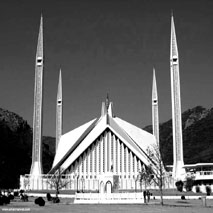Islamic education and diversity of its dimensions
THE Islamic education represents the Islamic spirit in general, it aspires to construct the human being toward achievement of the human values, the role of education to link between reality and values, it means reconciliation between theory and practice, saying or word and doing.
Islamic Education aims to make balance between three levels: sense, mind and ethics and promoting them by various educational methods.
The ego’s progress is a continuous dynamic movement which assimilates the different aspects and stages, without negating any, the perceptive and the intellectual, thought and emotions, ideas and deeds are all integrated into the final aim of the ego.
(Manzoor. 282 1984) Also, we find the same approach in Al-Ghazali’s writings, his system is so balanced that it is preoccupation with things divine and mystical experience leave room also for rational thinking, logical deduction and empirical observation.
(Al Tibawi. 41 1972). It is duty of all educators to find ways and means by which these high values are practically achieved within the learning period of their students from their earliest age to the years of maturity. (Mahar Abdul Haq 287 1990).
Islamic education believes in harmony between body and soul, and did not invest in one side and neglect the other.
Body and soul are not separate things, while they continued, so Islam is not treated them as dialectic and dualism.
Keeping soul and body is an Islamic value; it means that every Muslim ought to keep them healthy, and to bring instruments and aims that achieve preserving value.
Ibn Miskawaih stipulated intellectual, physical and moral education aiming at producing good human beings from the social point of view and achieving eternal happiness and self realization.
He presented the view that physical education must precede the spiritual and intellectual education.
True education must, therefore, minister to the needs of the body no less than the aspirations of the soul. (S M Ziauddin Alavi. 35 1988).
Islamic education emphasis the significance of the (purpose) goal of science or knowledge, because the function of science is to serve the human being.
So scientific research must aim to bring benefit for humanity and to be connected with certain human values, but science does not give benefit and may harm humanity and offensive the equality of life, it is an acceptable science.
In contrast to previous concept, Halstead perceive the functional aim of science in different ways, he claims, “Like money, knowledge is not to be accumulated for its own but must be put to use.
And the appropriate use for knowledge from a Muslim perspective is to help people to knowledge Cod, to live in accordance with Islamic law and fulfil the purposes of God’s creation.
Knowledge which does not serve these purposes may be considered useless. All this implies a concept of knowledge that is very different from dominant western concepts.
(J M halstead. 520 2004). Ibn Miskawaih discusses knowledge in the background of his concept of soul, which can achieve the knowledge of ultimate reality and possesses rational knowledge.
He considers knowledge as the basis of good character and says the root of all virtues is knowledge so in the acquisition of knowledge lays human perfection.
(Ziauddin Alavi. 35 1988). Also, Islamic education does not separate between humanism and citizenship. It indicates the humanism but not mentioned citizenship, because it including in largest circle.
There is no question that the Muslim being had to behave the same behaviour everywhere. As well as education for reconciliation between individual and community.
Muhammad Iqbal, the goal of education is “the creation of men”, he balances the concern for individuality with an active and responsible social reformation. (Wan Mohd Nor 124 1998).
Islam recognizes the autonomy of individual and his needs, in the same time individual ought to communicate with others. Ibn Khaldon shows why people need to co-operate each other.
“A single human being cannot live by himself, and his existence can materialize only in association with his fellow men. (Alone) he would be unable to have a complete existence and lead a complete life.
By his very nature, he needs the cooperation of others to satisfy all his needs… God caused human beings to act in an orderly and well-arranged manner, as the result of their ability to think”.
(Ibn Khaldun. 417 1958) Duty is the most important in the Islamic education, because duty contributes to the commutation between individual and society. Also it empowers social solidarity, and social justice in the society.
The prophet (PBUH) says: “You find the Muslims in their mutual love and compassion, like one body, should any organ of it fall ill, the rest of the body will share in the fever and sleeplessness that ensues”.
The duty doing is produced from the ethical values that it is existing into human being in born.
Thus, knowledge and science had a functional role which comes to achieve better life for humankind.
Therefore, Islamic education awares to the importance of development thinking and personal autonomy in order to achieve ideal values.
—The writer is well-known author and research scholar at National University of Modern Languages Islamabad.










